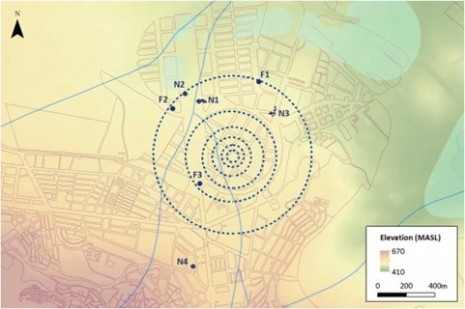Dr. Marta Díaz-Zorita Bonilla
Institut für Ur- und Frühgeschichte und Archäologie des Mittelalters, Eberhard Karls Universität Tübingen
SFB 1070 «RessurcenKulturen», Eberhard Karls Universität Tübingen
The formation process of these extraordinarily large prehistoric sites is clearly yet not well understood. The flourishment of those sites, mainly during the end of the 4th and the beginning of the 3rd millennium BC was possibly due to their strategic position in a favorable environment of high-productive soils and plenty of abiotic resources. Therefore, this is encompassed by a demographic increase as well as social and economic development. Their nature, setting, and the great amount of different structures including many pits, large-sized ditches, features and megalithic monuments, makes these sites quite especial to explore the social complexity and cultural variability during the Late European prehistory. Specially, because this is all reflected in very complex and diverse funerary practices. In some of those megasites, outstanding structures yielded evidence of exotic material craftsmanship without parallels in Iberian Late Prehistory suggesting middle but also long-distance contacts.
A selection of megasites from Iberia would be explained in detail including one of the largest sites such as Valencina-Castilleja but a comparative approach will be made with other megasites such as La Pijotilla and Marroquíes Bajos. Therefore, I will present a review of the state of the art of the current research focusing on the last bioarchaeological methods applied and the social organization of the Late Neolithic/Copper Age communities in Iberia.
Zugangsdaten
Teilnahme über Zoom
https://univienna.zoom.us/j/69406892260?pwd=UnhMaHNqTG1ES0dQOG5BTlZxdElYUT09
Teilnahme über den Internet-Browser:
https://zoom.us/join
Meeting-ID: 694 0689 2260 Kenncode: 553453
